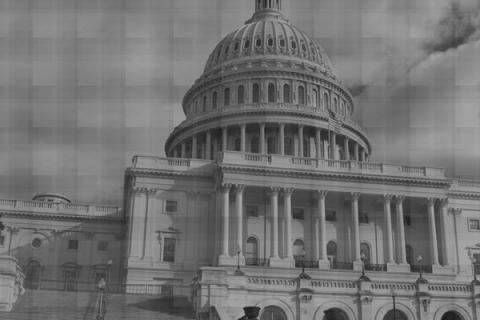With the Sierra snow pack at “the smallest amount at this time of year since measurements began in 1964,” as reported in the San Francisco Chronicle, there’s plenty of concern about precious water resources to serve California. But there’s a deep reservoir of political discord in any debate over water allocation.
Now, the Field Poll has revealed some of the new deep-seated divisions within the state over what is called the Peripheral Canal plan to re-direct water from the Sacramento Delta to the Central Valley’s rich agricultural region.
“The change, according to a Field Research Poll, is the shift in the north-south dichotomy that has ruled water disputes for decades,” according to The Independent, a Pleasanton area newspaper.
The Field Poll found that the real split on water issues today in California is East-West. It's not so much geography, as it is political power.
The Peripheral Canal is part of the Bay Delta Conservation Plan (BDCP), which is backed by the administrations of Governor Brown and President Obama. Among opposition to the plan are Delta area Representatives Mike Thompson, George Miller, Doris Matsui, John Garamendi and Jerry McNerney.
The five politicians met in October with Jerry Meral, the Deputy Secretary of the California Natural Resource Agency (CNRA) to express their grave concerns that the BDCP would adversely affect the Delta Region, according to a news release from McNerney's office. Meral, a strong supporter of the Peripheral Canal for over three decades, is the senior state official who oversees the BDCP.
Despite the objections of the five representatives, the Department of the Interior announced in December that it was moving ahead with its plan to help the Delta environment. McNerney, who represents the Pleasanton area, said on December 19 that he was "disappointed and upset that the Department of the Interior has decided to move forward with this Memorandum of Agreement (MOA).” He called the MOA “deeply flawed an affront to the people of the Delta communities.”A coalition of Delta residents, family farmers, fishermen, Indian Tribes, environmental justice communities and elected officials is also opposing the canal's construction. On the other hand, state and federal water contractors outside of the Delta who rely on the Delta for their water source support the process. These contractors are actually paying for the process through a contractual agreement with the government. In addition, more than 20 state lawmakers signed a letter supporting the water contractors' position to move ahead on the MOA. Senators Barbara Boxer and Dianne Feinstein also signed the letter.
The need for an alternative means of transferring water south from Sacramento is a direct result of court orders protecting the endangered Delta smelt from damage by the pumps carrying water from Northern California into the Central Valley. Tens of thousands of the fish have been killed when they entered the huge Tracy pumps used in the current transport system.
The issue is more than just the single endangered fish, though, according to the San Francisco Chronicle:
“The health of the delta smelt, a 2- to 3-inch long silver-colored fish, is, according to biologists, a sign of the overall health of the ecosystem, including other fish species such as striped bass, longfin smelt, threadfin shad and Chinook salmon. At stake is not only a rare species of fish uniquely adapted to the delta's shifting currents and brackish water but also the drinking and irrigation water for millions of Californians from the Bay Area, throughout the San Joaquin Valley and in Southern California.”
California’s legendary water wars – subject of the 1974 Academy Award-winning movie “Chinatown” – appear likely to go on unabated for the foreseeable future.

